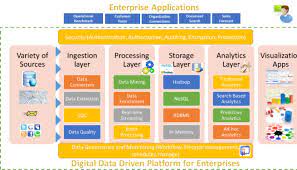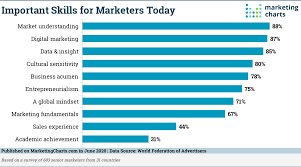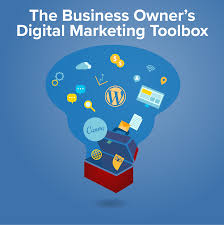The Power of Digital Marketing Tools
The Power of Digital Marketing Tools
In today’s digital age, businesses are constantly seeking ways to enhance their online presence and reach a wider audience. This is where digital marketing tools come into play, offering a plethora of resources to streamline and optimise marketing efforts.
What are Digital Marketing Tools?
Digital marketing tools encompass a range of software and platforms designed to help businesses create, manage, and track their online marketing campaigns. From social media management tools to analytics platforms, these tools provide valuable insights and automation capabilities that can significantly boost a company’s digital marketing strategy.
The Benefits of Using Digital Marketing Tools
Utilising digital marketing tools offers numerous benefits for businesses looking to maximise their online presence:
- Improved Efficiency: Automation features in many tools help streamline repetitive tasks, saving time and resources.
- Enhanced Analytics: Tools provide in-depth data analysis, allowing businesses to track campaign performance and make informed decisions based on real-time metrics.
- Targeted Advertising: With tools that offer audience segmentation and targeting capabilities, businesses can tailor their marketing efforts to specific demographics for better results.
- Increased Engagement: Social media management tools enable businesses to interact with their audience in real-time, fostering engagement and building brand loyalty.
Popular Digital Marketing Tools
There is a wide array of digital marketing tools available in the market catering to various aspects of online promotion. Some popular tools include:
- Google Analytics: A powerful analytics tool that provides detailed insights into website traffic, user behaviour, and conversion rates.
- Hootsuite: A social media management platform that allows businesses to schedule posts, engage with followers, and monitor social media activity across multiple channels.
- Moz Pro: An SEO toolset that helps businesses improve search engine rankings through keyword research, link analysis, and site audits.
- Mailchimp: An email marketing platform that enables businesses to create targeted email campaigns, automate responses, and track email performance metrics.
In Conclusion
Digital marketing tools play a crucial role in helping businesses navigate the complex landscape of online promotion. By leveraging the capabilities of these tools, companies can enhance their marketing strategies, engage with their target audience more effectively, and ultimately drive business growth in the digital realm.
Comprehensive Guide: 23 Frequently Asked Questions About Digital Marketing Tools
- Which is the best digital marketing tool?
- What are the marketing tool of digital marketing?
- How many tools are there in digital marketing?
- What are the 4 types of digital marketing?
- What are the 7 M of digital marketing?
- What are the seven marketing tools?
- What are the 7 types of digital marketing?
- What are three major types of digital marketing tools?
- What are the 4 C’s of digital marketing?
- What is basic digital tool?
- What tool is used in digital marketing?
- Which tool is mostly used in digital marketing?
- What are the different tools used in digital marketing?
- What is the most effective digital marketing tool?
- What are the 5 methods of digital marketing?
- What are the four digital marketing tools?
- What is a digital marketing tool?
- What is the most important tool in digital marketing?
- What are the 5 digital tools?
- What are basic digital tools?
- What is the most popular marketing tool?
- What are digital marketing tools?
- What is the best tool for digital marketing?
When it comes to the question of which is the best digital marketing tool, the answer is not straightforward. The effectiveness of a digital marketing tool often depends on the specific needs and goals of a business. Different tools excel in various areas such as social media management, email marketing, SEO, analytics, and more. It is essential for businesses to evaluate their requirements carefully and choose a tool that aligns with their objectives and budget constraints. Conducting thorough research, reading reviews, and even testing out different tools through trials can help in determining the most suitable digital marketing tool for achieving success in online promotion efforts.
When it comes to digital marketing, the tools available to businesses are diverse and essential for successful online promotion. From analytics platforms like Google Analytics to social media management tools such as Hootsuite, the marketing tools of digital marketing encompass a wide range of resources designed to streamline and enhance marketing efforts. These tools enable businesses to track campaign performance, engage with their audience effectively, improve search engine rankings, and create targeted email campaigns. By leveraging the power of digital marketing tools, businesses can optimise their online presence and achieve their marketing objectives with precision and efficiency.
The number of tools available in digital marketing is vast and continually expanding to meet the diverse needs of businesses in the online realm. From social media management platforms and email marketing software to SEO tools and analytics solutions, there is a wide array of digital marketing tools to choose from. The exact count of tools in digital marketing is challenging to pinpoint due to the ever-evolving nature of technology and the emergence of new tools regularly. However, businesses have a plethora of options at their disposal to enhance their online presence, engage with their target audience, and drive successful digital marketing campaigns.
What are the 4 types of digital marketing?
In the realm of digital marketing, there are four key types that businesses often utilise to reach and engage their target audience effectively. These include search engine optimisation (SEO), which focuses on enhancing a website’s visibility in search engine results; social media marketing, which involves promoting products or services on various social media platforms; pay-per-click (PPC) advertising, where advertisers pay a fee each time their ad is clicked; and email marketing, a strategy that involves sending targeted messages to potential and existing customers via email. Each type of digital marketing offers distinct advantages and can be tailored to suit specific business goals and objectives.
What are the 7 M of digital marketing?
In the realm of digital marketing, the concept of the 7 M’s serves as a valuable framework for understanding key elements that contribute to a successful online strategy. The 7 M’s of digital marketing typically include Market, Message, Media, Method, Money, Measurement, and Management. Each ‘M’ represents a crucial aspect that businesses need to consider when crafting their digital marketing campaigns. From identifying target markets and crafting compelling messages to selecting appropriate media channels and allocating budgets effectively, these 7 M’s provide a comprehensive guide to navigating the dynamic landscape of digital marketing and achieving meaningful results.
In the realm of digital marketing, the question “What are the seven marketing tools?” often arises as businesses seek to optimise their online strategies. While the specific set of tools may vary depending on individual needs and goals, common categories typically include analytics platforms such as Google Analytics for data insights, social media management tools like Hootsuite for engaging with audiences, email marketing services such as Mailchimp for personalised communication, SEO toolsets like Moz Pro for improving search visibility, content management systems to streamline content creation and distribution, advertising platforms such as Google Ads for targeted campaigns, and customer relationship management (CRM) software to manage customer interactions effectively. By leveraging these essential marketing tools, businesses can enhance their digital presence and drive success in an increasingly competitive online landscape.
What are the 7 types of digital marketing?
In the realm of digital marketing, understanding the various types of strategies and tools available is essential for creating impactful online campaigns. The seven key types of digital marketing include search engine optimisation (SEO), pay-per-click advertising (PPC), social media marketing, content marketing, email marketing, influencer marketing, and affiliate marketing. Each type serves a unique purpose in reaching and engaging target audiences across different online platforms. By utilising a combination of these digital marketing approaches, businesses can effectively enhance their online presence, drive brand awareness, and achieve their marketing objectives in the digital landscape.
When exploring the realm of digital marketing tools, it is essential to understand the three major types that play a significant role in enhancing online strategies. Firstly, analytics tools such as Google Analytics provide valuable insights into website performance, user behaviour, and campaign effectiveness. Secondly, social media management platforms like Hootsuite enable businesses to streamline their social media presence, schedule posts, and engage with their audience across various channels. Lastly, email marketing software such as Mailchimp allows companies to create targeted email campaigns, automate responses, and track the success of their email marketing efforts. These three categories of digital marketing tools are instrumental in driving successful online marketing campaigns and achieving business objectives.
What are the 4 C’s of digital marketing?
The 4 C’s of digital marketing refer to a strategic framework that focuses on customer-centricity, content, convenience, and communication. Customer-centricity emphasises the importance of understanding and meeting the needs of the target audience to create meaningful interactions. Content plays a vital role in engaging and informing customers through valuable and relevant information. Convenience highlights the significance of providing seamless and user-friendly experiences across digital channels. Communication involves building relationships with customers through personalised and timely interactions to foster trust and loyalty in the digital marketing landscape.
A basic digital tool in the realm of digital marketing refers to fundamental software or platform that aids businesses in establishing their online presence and executing essential marketing activities. These tools typically include website builders, email marketing platforms, social media management tools, and basic analytics software. While they may not have advanced features found in more specialised tools, basic digital tools serve as a foundation for businesses looking to kickstart their digital marketing efforts and engage with their target audience effectively.
In the realm of digital marketing, a wide range of tools is utilised to enhance online promotional efforts and achieve marketing objectives. From social media management platforms like Hootsuite and Buffer to analytics tools such as Google Analytics and SEMrush, businesses leverage various software solutions to streamline their campaigns, track performance metrics, and engage with their target audience effectively. Email marketing platforms like Mailchimp and automation tools like HubSpot also play a significant role in executing successful digital marketing strategies. The choice of tool depends on the specific goals and requirements of each campaign, highlighting the importance of selecting the right digital marketing tool to drive success in the online landscape.
When it comes to digital marketing, one of the most frequently used tools is Google Analytics. Google Analytics is a powerful platform that provides comprehensive insights into website traffic, user behaviour, and conversion rates. It allows businesses to track the performance of their online campaigns, identify areas for improvement, and make data-driven decisions to enhance their digital marketing strategies. With its user-friendly interface and robust features, Google Analytics has become an indispensable tool for businesses looking to optimise their online presence and drive success in the digital landscape.
In the realm of digital marketing, a common query revolves around the diverse array of tools utilised in this dynamic field. From analytics platforms like Google Analytics for tracking website performance to social media management tools such as Hootsuite for engaging with audiences across multiple channels, the toolbox of a digital marketer is vast and varied. SEO toolsets like Moz Pro aid in improving search engine rankings, while email marketing platforms like Mailchimp facilitate targeted campaigns and automated responses. These tools collectively empower businesses to enhance their online presence, engage with their target audience effectively, and drive measurable results in the ever-evolving landscape of digital marketing.
When it comes to determining the most effective digital marketing tool, the answer may vary depending on the specific goals and needs of a business. There is no one-size-fits-all solution, as different tools serve different purposes in the realm of digital marketing. Some may find email marketing platforms like Mailchimp highly effective for engaging with their audience, while others may rely on Google Analytics to gain valuable insights into website performance. Ultimately, the effectiveness of a digital marketing tool is measured by how well it aligns with a business’s objectives and contributes to achieving measurable results in terms of engagement, conversion rates, and overall success in online marketing efforts.
What are the 5 methods of digital marketing?
In the realm of digital marketing, there are five key methods that businesses often utilise to enhance their online presence and engage with their target audience. These methods include search engine optimisation (SEO), which focuses on improving a website’s visibility in search engine results; social media marketing, where businesses leverage social platforms to connect with customers and promote their products or services; content marketing, which involves creating and sharing valuable content to attract and retain a specific audience; email marketing, a direct communication channel for reaching out to customers with tailored messages; and pay-per-click (PPC) advertising, where businesses pay for each click on their online ads to drive traffic to their website. By incorporating these digital marketing methods into their strategies, businesses can effectively reach and connect with their online audience.
When it comes to digital marketing tools, businesses have a wide range of options to choose from to enhance their online presence and reach their target audience effectively. While there are countless tools available, four essential digital marketing tools that are commonly used include Google Analytics for in-depth website analytics, Hootsuite for social media management and scheduling, Moz Pro for search engine optimisation (SEO) insights and analysis, and Mailchimp for email marketing campaigns and automation. These tools offer valuable features and capabilities that can help businesses streamline their digital marketing efforts and achieve their marketing goals efficiently.
A digital marketing tool is a software or platform designed to assist businesses in executing and managing their online marketing strategies effectively. These tools encompass a wide range of functionalities, such as analytics, social media management, email marketing, SEO optimization, and more. By leveraging digital marketing tools, businesses can automate tasks, gain valuable insights into their campaigns’ performance, target specific audiences, and enhance their overall online presence. In essence, digital marketing tools are essential resources that empower businesses to navigate the digital landscape and achieve their marketing goals efficiently.
When it comes to digital marketing, the question of the most important tool often arises. While there isn’t a one-size-fits-all answer, many experts consider analytics tools to be among the most crucial in a digital marketer’s arsenal. Analytics tools provide valuable insights into campaign performance, audience behaviour, and conversion rates, allowing businesses to make data-driven decisions and optimise their marketing strategies effectively. By leveraging analytics tools, marketers can track the effectiveness of their efforts, identify areas for improvement, and ultimately drive better results in the competitive digital landscape.
In the realm of digital marketing, the question “What are the 5 digital tools?” is a common inquiry among businesses seeking to enhance their online presence. While the specific set of tools may vary depending on individual needs and goals, there are several key categories of digital tools that are widely utilised in marketing strategies. These may include analytics platforms like Google Analytics for tracking website performance, social media management tools such as Hootsuite for engaging with audiences across various channels, SEO toolsets like Moz Pro for improving search engine visibility, email marketing platforms like Mailchimp for targeted communication, and content management systems such as WordPress for creating and managing website content. By leveraging a combination of these essential digital tools, businesses can effectively streamline their marketing efforts and achieve greater online success.
Basic digital tools refer to essential software and platforms that form the foundation of a company’s online marketing efforts. These tools typically include basic analytics software, social media management platforms, email marketing services, and content management systems. While they may vary depending on specific business needs, basic digital tools are fundamental in establishing an online presence, engaging with audiences, and measuring the effectiveness of marketing campaigns. By utilising these foundational tools effectively, businesses can lay a strong groundwork for their digital marketing strategies and pave the way for further growth and success in the digital landscape.
When it comes to digital marketing tools, the question of the most popular tool often arises. While preferences may vary depending on specific needs and goals, one tool that consistently stands out as a popular choice among marketers is Google Analytics. Known for its robust analytics capabilities and comprehensive insights into website performance, user behaviour, and conversion tracking, Google Analytics remains a go-to tool for businesses looking to gain a deeper understanding of their online presence and make data-driven decisions to optimise their marketing strategies.
Digital marketing tools encompass a diverse range of software and platforms that assist businesses in creating, managing, and measuring their online marketing efforts. These tools serve as invaluable resources for streamlining tasks, analysing data, and enhancing campaign performance across various digital channels. From social media management platforms to SEO tools and email marketing software, digital marketing tools empower businesses to target their audience effectively, track key metrics, and optimise their online strategies for maximum impact.
When it comes to the frequently asked question of “What is the best tool for digital marketing?”, the answer can vary depending on the specific needs and goals of a business. The best tool for digital marketing is one that aligns with the company’s objectives, budget, and target audience. Some popular choices include Google Analytics for in-depth website analytics, Hootsuite for social media management, Moz Pro for search engine optimization (SEO), and Mailchimp for email marketing. Ultimately, the effectiveness of a digital marketing tool lies in how well it complements a business’s overall strategy and helps achieve its desired outcomes.





